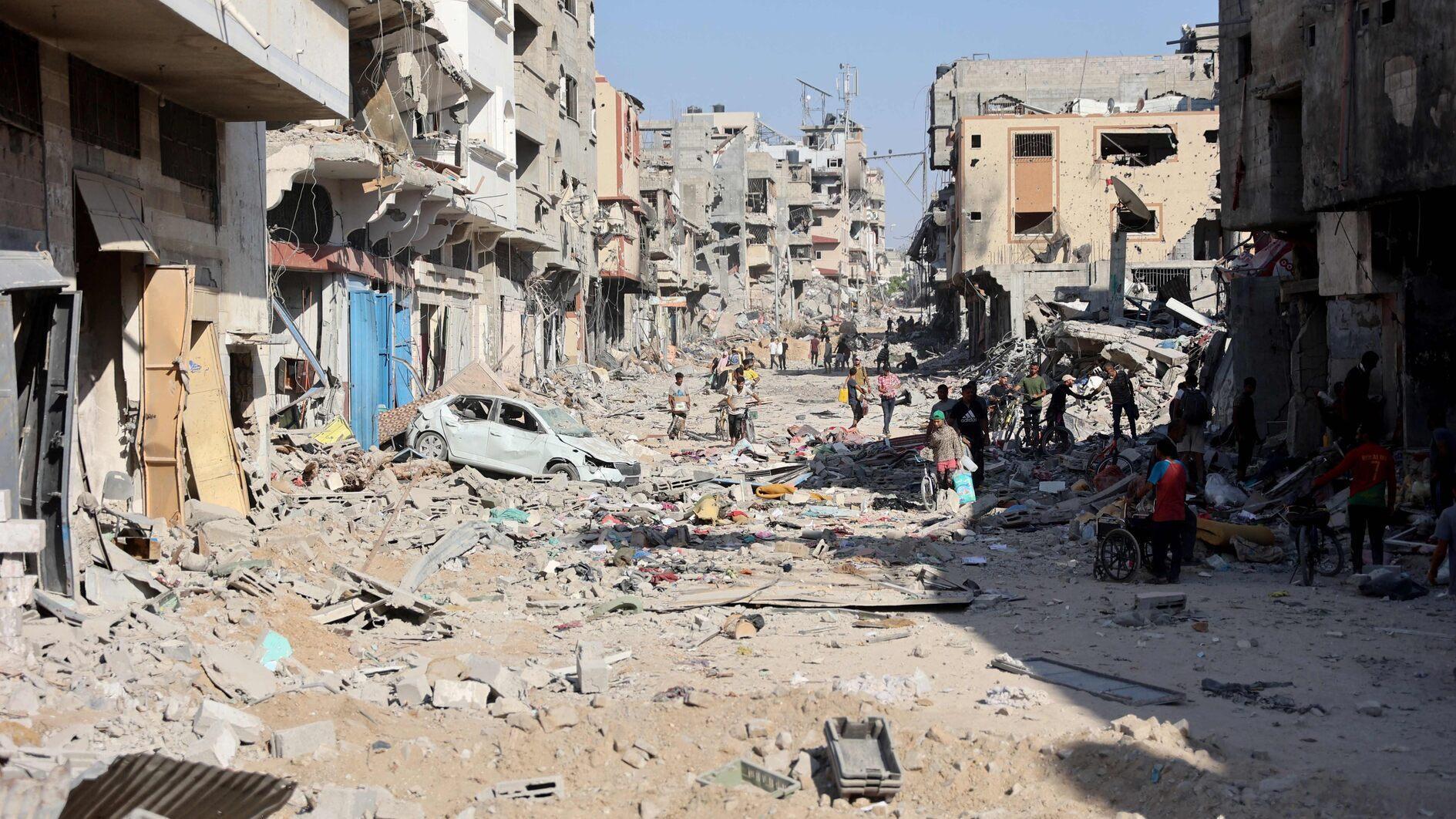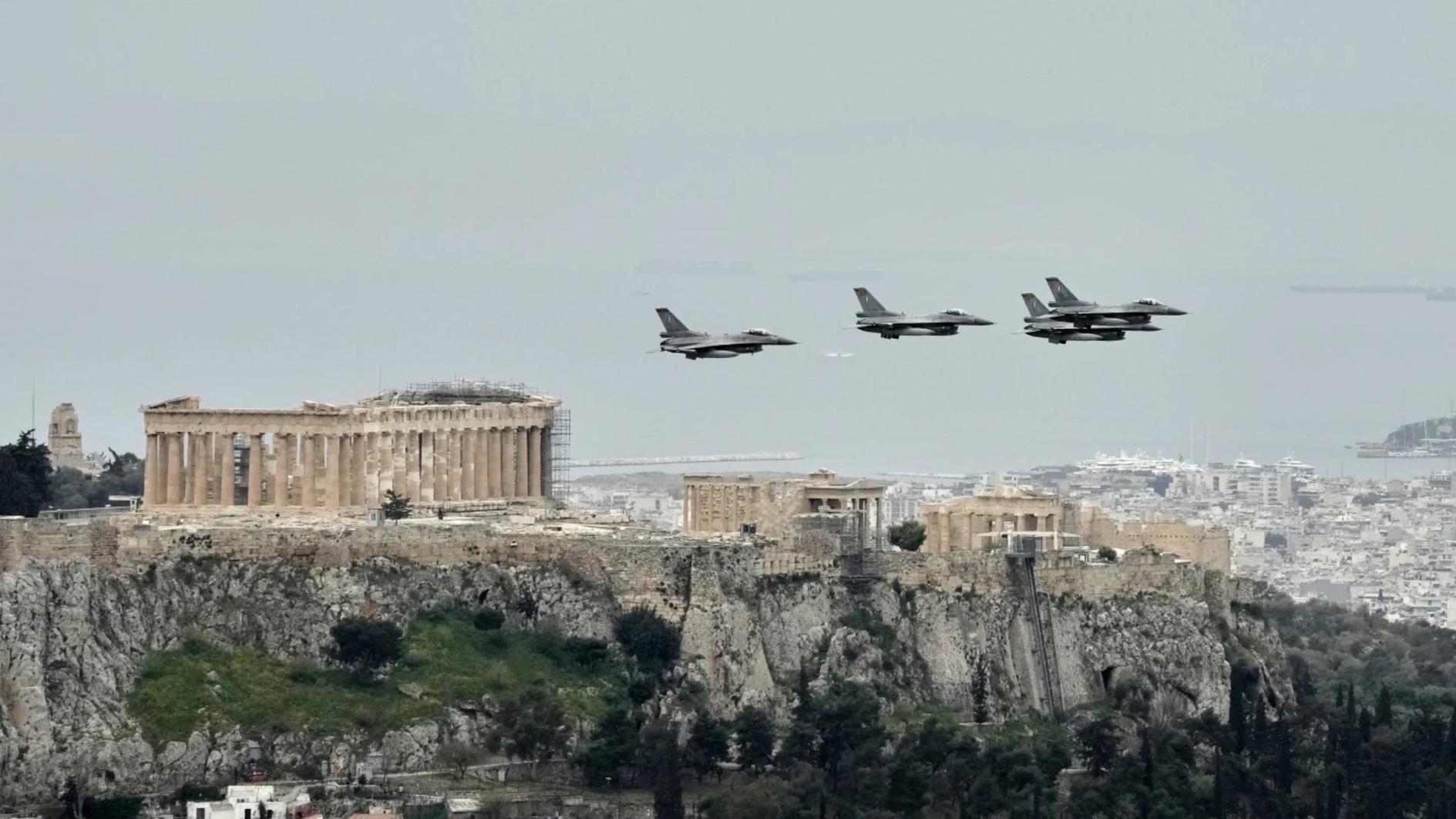Israeli strikes pound Gaza's north
GAZA STRIP

Israeli air strikes pounded parts of Gaza's biggest city on Thursday, Hamas said, after Israel's military declared an end to its operation in an eastern district that saw Gaza City's heaviest combat in months.
The upsurge in fighting, bombardment and displacement followed Israeli Prime Minister Benjamin Netanyahu's statement in late June that "the war in its intense phase is about to end".
It also came as talks were held in the Gulf emirate of Qatar towards a truce and hostage release deal after more than nine months of war.
Gaza's ruling Hamas Islamists said troops had pulled back from Gaza City's eastern district of Shujaiya leaving behind "more than 300 residential units and more than 100 businesses destroyed."
Witnesses on Thursday said tanks and troops had moved into other Gaza City areas, and clashes between Israeli forces and militants were occurring. Explosions, artillery shelling and gunfire could be heard, they said.
Smoke rose over parts of the city, according to AFP correspondents.
Hamas on Thursday reported 45 air strikes in the Gaza City area, as well as in Gaza's southernmost city of Rafah, where Netanyahu had said the intense phase of the war was nearing its conclusion.
'Immense destruction'
Israel launched its war on Gaza in retaliation for the Hamas' Oct. 7 attacks that resulted in the deaths of more than 1,190 people, mostly civilians, according to Israeli official figures.
Hamas seized 251 hostages. Of these 116 remain in Gaza, although the army says 42 of them are dead.
Israel's offensive has killed more than 38,250 people in Gaza, mostly civilians, according to the Hamas-run territory's health ministry.
The latest toll included 50 new deaths over the previous 24 hours, it said.
Israel's military saw Rafah as the last stronghold of Hamas and in January said the militants' "military framework" in Gaza's north had been dismantled, after bombardment and fighting devastated the area early in the war.
Netanyahu has vowed to destroy Hamas, a goal whose attainability has been questioned by critics both in Israel and abroad.
Israel's military said on Wednesday it had completed its mission in Shujaiya after two weeks that, AFPTV images show, left the area a grey, blasted-out wasteland.
The images showed Palestinians gathered around a destroyed and burned armoured vehicle beneath a blackened building on a street carpeted with rubble.
Standing nearby, Mohammed Nairi said he and other residents returned to "immense destruction that defies description. All the houses were demolished."
Another displaced resident, a can of food tucked under her arm, said the district "lies in ruins."
'Dangerous combat zone'
The health ministry said six bodies had been recovered after the pullback of Israeli troops from Shujaiya.
On Wednesday the army dropped leaflets warning "everyone in Gaza City" that the area would "remain a dangerous combat zone". The leaflets urged residents to flee, and set out designated escape routes from the area where U.N. humanitarian agency OCHA said up to 350,000 people were staying.
The United Nations said the latest evacuations "will only fuel mass suffering for Palestinian families, many of whom have been displaced many times", and who face "critical levels of need".
An Israeli government spokesman said the aim was "to put civilians out of harm's way" as troops battle militants.
Hamas official Hossam Badran, asked about the increased military operations, told AFP that Israel was "hoping that the resistance will relinquish its legitimate demands" in truce negotiations.
But "the continuation of massacres compels us to adhere to our demands", he said.
An Israeli delegation led by spy chief David Barnea arrived in Qatar for truce talks, said a source with knowledge of the sensitive negotiations.
CIA director William Burns was also expected in the Qatari capital after holding talks in Cairo on Tuesday.
Netanyahu separately met U.S. President Joe Biden's special envoy for the Middle East, Brett McGurk.
The Israeli prime minister "emphasised his commitment" to a proposed truce plan, "as long as Israel's red lines are preserved", his office said.
The former headquarters of the U.N. Palestinian relief agency, UNRWA, has been a target of the latest operation. An Israeli military statement said troops "located large quantities of weapons in the area of the headquarters," including explosive drones and rockets.
UNRWA has not had control of the building since October.
March to Jerusalem
Israel's military said operations are continuing in the Rafah area where "dozens" of militants were killed over the past day.
The military said it responded with air and ground strikes after five projectiles were fired toward Israel from the Rafah area on Thursday.
Demonstrations by anti-government protesters demanding new elections and a deal to free the hostages have intensified. Relatives of Israeli hostages are on a four-day march from Tel Aviv to the seat of government in Jerusalem.
"We want all of Israel to come out with us" and "remind Netanyahu that... he needs to sign a deal to bring them back and stop this terrible war," said Ayala Metzger, daughter-in-law of hostage Yoram Metzger, 80, who died in captivity.
Since the start of the Gaza war, Israeli forces have also traded regular fire with Hezbollah militants in Lebanon, allies of Hamas, sparking fears of a broader regional conflagration.
Hezbollah chief Hassan Nasrallah said that if fighting in Gaza ends "our front will cease fire without any discussion."
















